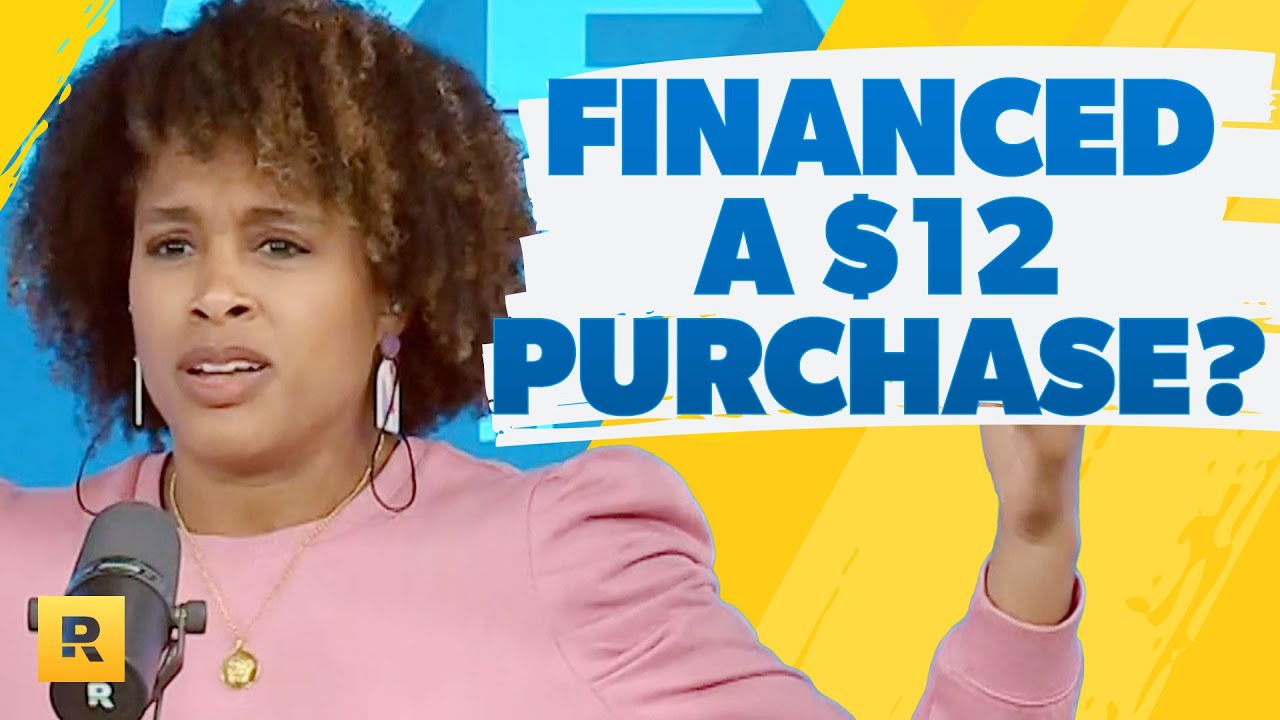I only have three allergies: pistachios, cashews, and debt.
I had a credit card once in college and messed it up. I dealt with the collection agency harassment and all that junk. Then, I decided that I’m a cash-only girl.
That means no car notes, no credit cards, not even lines of credit. Even as I was starting my business, the Lord made it very clear that I was not to take on any debt, not even a line of credit.
Yes, we have a mortgage, but we have tenants that cover most of it.
Yes, we have student loans, but those are getting chopped off in the next three years. (I should have paid them off sooner, but I decided to start a business and couldn’t do both.)
The New Debt Trap
If you’re into online shopping, you’ve seen these micro financiers pop up: Affirm, Klarna, AfterPay.
These companies allow you to finance everything: dinner, socks, drinks. And they’re conditioning younger folks to get used to the buy now, pay later mentality, instead of saving and buying something outright.
Um…no ma’am, no, sir. We are not doing that. We’re not going into debt to buy stuff, especially cheap stuff.
Scripture makes a blanket generalization that debt is bad, so it’s bad, regardless of what the financial analysts say.
- Stop believing the lie that there’s any such thing as good debt. There is no “good debt.”
- Stop believing the lie that a low monthly payment is a win. It’s not. You’re giving the lender more time to collect interest from you.
- Stop believing the lie that if you pay off your credit card each month, you’re winning. You’re still using a debt vehicle. Plus, if you’ve got the cash, then just pay in cash.
- If you have a scripture that shows debt is good, then put it in the comments, and I’ll correct this point.
Our goal as believers should be to disconnect from world systems and be set apart from how they do things. To disconnect from ungodly financial systems, step one is to avoid owing them anything.
That means if we have to take on debt, we fast-track paying it off, especially if it’s tied to precious resources like our homes, our land, and our businesses.
| Code Words That All Mean Debt | |||
| Annual Percentage Rate (APR) | Amortization | Arrears | Balance |
| Balloon payment | Bankruptcy | Co-Signer | Credit Score |
| Debt-to-Income Ratio | Default | Down Payment | Graduated Payment |
| Interest Rate (except` investing) | Monthly Payment | Payment Plan | Principal |
We’re Already Drowning In Debt
As soon as Black people walked off the plantation, several states built new ways to keep slavery going—usually through debt.

Sharecropping, tenant farming, and “apprenticeships” (aka child kidnapping and re-enslavement for ransom) was the first episode of Blacks working to pay off debts after emancipation.
This picture shows a family of workers tending crops at Bayou Bourbeau plantation in Louisiana in 1940.
We still haven’t learned.
Consumer debt has Black couples handcuffed to jobs we hate and lives we can’t sustain.
- Black Americans already take out more in student loans, even though our salaries are lower.
- Black households are more likely to have their wages eaten up with payday loans, car notes, and credit cards.
When are we going to follow what the scriptures have been telling us since Moses?
Scriptures About Debt
Debt takes away your livelihood and security. Please review these scriptures. Then, cut up your credit cards:
Deuteronomy 24:6
6 “No man shall take the lower or the upper millstone in pledge, for he takes one’s living in pledge.
Proverbs 22:26
26 Do not be one of those who shakes hands in a pledge,
One of those who is surety for debts;
27 If you have nothing with which to pay,
Why should he take away your bed from under you?
Proverbs 22:7
7 The rich rules over the poor,
And the borrower is servant to the lender.
Proverbs 11:15
15 He who is surety for a stranger will suffer,
But one who hates being surety is secure.
In this clip, Jade Warshaw and George Kamel call out the new trap that’s conditioning young folks to get comfortable not paying for stuff in real time.
Take Home Messages/Reflection QuestionsWhat have you been told about debt that conflicts with scripture?
Are you staying in a profession you hate, because you’ve taken on too much debt? If so, what is your exit/debt-reduction strategy?
Let’s focus on leaving paid-off assets to our children, so they don’t have to deal with this mess.
Disclaimers: The content featured on Meachum Village is for information and inspiration only. Please consult your own attorney, physician, financial advisor, pastor, therapist, mama and daddy, or whoever before you take any advice. The content featured on the Meachum Village website means the specific message resonates with the mission of Meachum Village. It does not mean we endorse everything about that person. The Meachum Village team may not know these people personally, and we are not responsible for any unGodly craziness they’re into outside of the featured content. If your content has been featured on the Meachum Village website, and you would like it removed, please email hello@meachumvillage.org.

